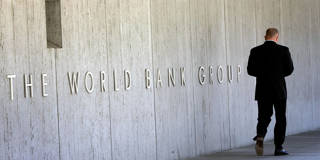Following its recent business-environment rankings scandal, the World Bank will have to overcome a deep trust deficit and take drastic steps to restore public confidence in its data. Any new efforts it undertakes in this area should meet four minimum criteria.
WASHINGTON, DC – Earlier this year, the World Bank commissioned me and five fellow academics to develop recommendations on how to improve the methodology behind its annual Doing Business report, which ranked countries on the quality of their business regulations and their overall business environment. The report had been a lightning rod for controversy since its inception in 2003. While it generated glowing coverage in the global business media, it was also subject to constant criticism for its perceived anti-regulation, anti-union, and anti-tax slant.
On September 1, we submitted our final recommendations, calling for a major overhaul of Doing Business including ending the practice of ranking countries. Two weeks later, the World Bank announced that it was scrapping the report entirely after a separate investigation by an outside law firm concluded that data had been deliberately manipulated in order to alter some countries’ rankings, notably those of China and Saudi Arabia.
Setting aside the debate over what really happened in the past, the end of Doing Business has important consequences. We have no doubt that the world needs a tool to measure countries’ conditions for business development and attractiveness for foreign direct investment, and that the data from such a project are highly relevant to both researchers and business and government leaders.

WASHINGTON, DC – Earlier this year, the World Bank commissioned me and five fellow academics to develop recommendations on how to improve the methodology behind its annual Doing Business report, which ranked countries on the quality of their business regulations and their overall business environment. The report had been a lightning rod for controversy since its inception in 2003. While it generated glowing coverage in the global business media, it was also subject to constant criticism for its perceived anti-regulation, anti-union, and anti-tax slant.
On September 1, we submitted our final recommendations, calling for a major overhaul of Doing Business including ending the practice of ranking countries. Two weeks later, the World Bank announced that it was scrapping the report entirely after a separate investigation by an outside law firm concluded that data had been deliberately manipulated in order to alter some countries’ rankings, notably those of China and Saudi Arabia.
Setting aside the debate over what really happened in the past, the end of Doing Business has important consequences. We have no doubt that the world needs a tool to measure countries’ conditions for business development and attractiveness for foreign direct investment, and that the data from such a project are highly relevant to both researchers and business and government leaders.